Archbishop Desmond Tutu death: who was South African religious leader - and connection to Nelson Mandela
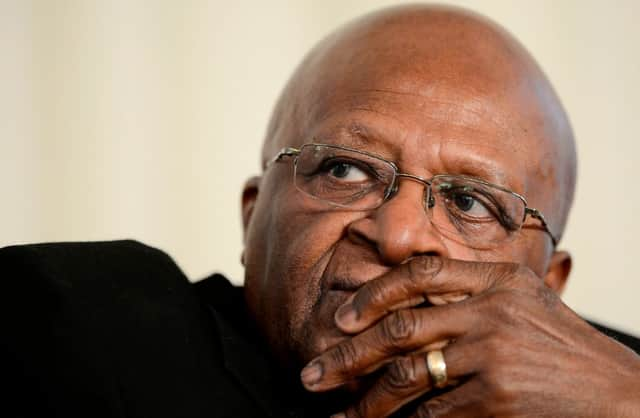

Tributes have poured in following the announcement that Archbishop Desmond Tutu has died on Boxing Day aged 90.
The Archbishop of Canterbury Justin Welby, Prime Minister Boris Johnson and South African Strictly Come Dancing stars Oti and Motsi Mabuse have been among the many to pay tribute to the late Christian leader.
Advertisement
Hide AdAdvertisement
Hide AdA leading figure in the fight against apartheid in South Africa, the Archbishop also campaigned against other forms of racial and social injustice across the globe.
His death comes just a matter of weeks after that of FW de Klerk - the President of South Africa who oversaw the end of apartheid.
So who was Desmond Tutu, what exactly did he do - and what have people said about him?
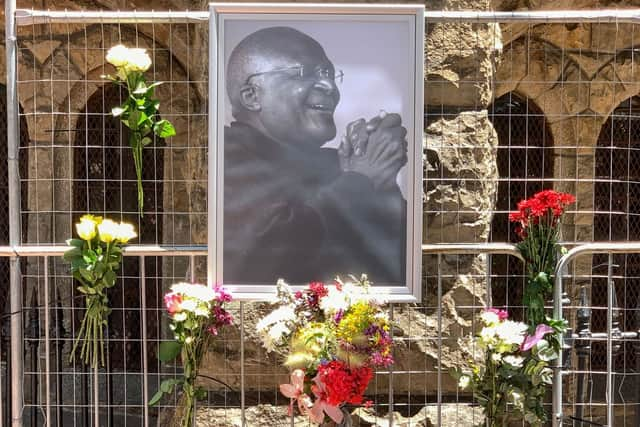

Who was Archbishop Desmond Tutu?
Archbishop Desmond Tutu was born in South Africa on 7 October 1931.
Advertisement
Hide AdAdvertisement
Hide AdHe was ordained as an Anglican priest in the country in 1960 and became the chaplain at the University of Fort Hare, one of the few quality further education establishments for black South Africans and a hotbed of dissent against the government.
South African governments throughout much of the twentieth century were led by the Afrikaner white ethnic minority, which had imposed racial segregation laws known as apartheid in the late 1940s.
These rules governed where people of non-white ethnicity could live, what jobs they could do and even what beaches they could sunbathe on.
Archbishop Tutu then attended King’s College London between 1962 and 1967, where he received degrees in theology.
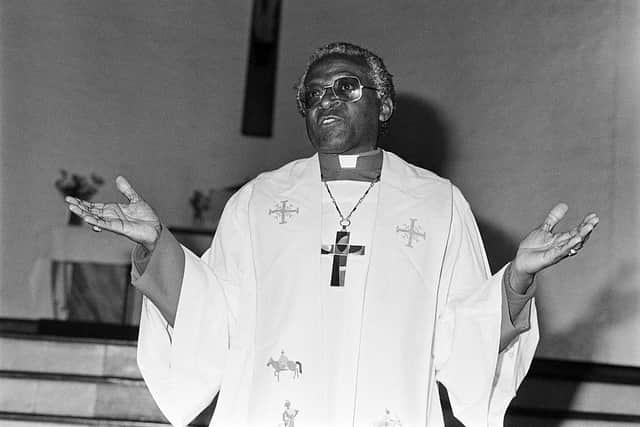

Role in end of apartheid
Advertisement
Hide AdAdvertisement
Hide AdUpon his return to South Africa he gave lectures highlighting the plight of the African population and eventually became the first African to be appointed Anglican Dean of Johannesburg.
Rising to prominence as a key voice against apartheid, Archbishop Tutu received numerous awards, including the Nobel Peace Prize in 1984 for his “role as a unifying leader figure in the campaign to resolve the problem of apartheid in South Africa”.
He was also praised for being a courageous political campaigner who had a homely manner, as well as a kind and witty personality that endeared him to anti-apartheid campaigners.
It meant the South African government often seemed to be almost permanently embarrassed by a man whose standing in the church made it virtually impossible for them to bully or harass him.
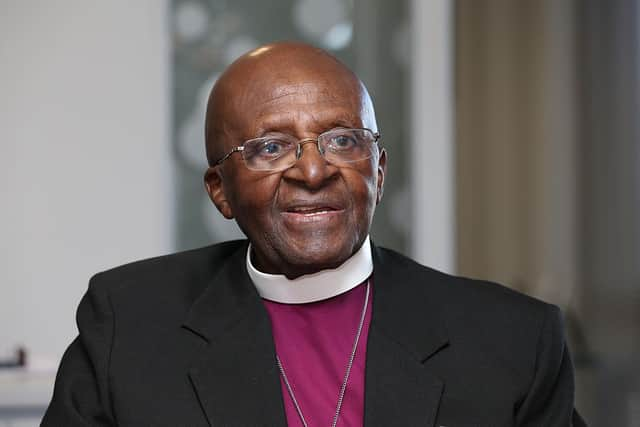

Advertisement
Hide AdAdvertisement
Hide AdThis embarrassment appeared to reach its zenith when Archbishop Tutu was ordained as South Africa’s first black Anglican Archbishop - for Cape Town - in 1986.
But while he railed against the brutal Afrikans regime, he also denounced the violent tactics of some anti-apartheid groups, like the African National Congress (ANC).
Archbishop Tutu was credited, alongside Nelson Mandela, with playing a key role in bringing apartheid to an end in 1991 - an event that paved the way for Nelson Mandela to form a democratically elected government in 1994.
After apartheid fell, he headed the Truth and Reconciliation Commission - a series of public hearings which sought to bring South Africa together by addressing its recent history under apartheid.
Advertisement
Hide AdAdvertisement
Hide AdIt was around this time he was credited with popularising the term ‘Rainbow Nation’ to describe South Africa - a phrase that is still widely used to describe the country’s wide mix of cultures.
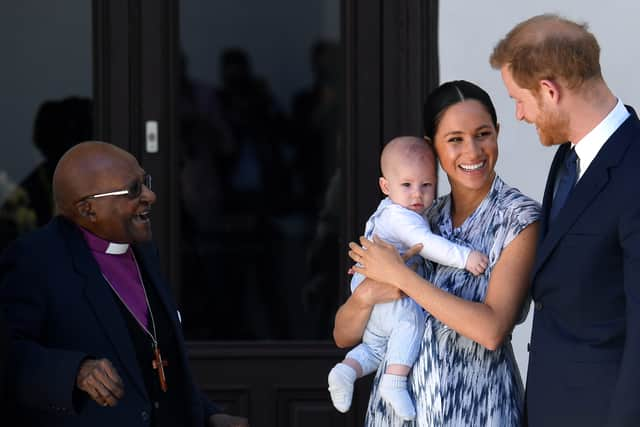

Archbishop Tutu’s post-apartheid life
Archbishop Tutu also addressed other societal injustices during his lifetime.
One such cause was his fight against homophobia in the Christian establishment.
He said he believed “God is weeping” at the treatment of LGBTQ+ people in the church.
Advertisement
Hide AdAdvertisement
Hide AdArchbishop Tutu was also a vocal critic of human rights abuses in Zimbabwe and Israel.
He likened Israel’s treatment of Palestinians to the treatment of black South Africans under apartheid.
The South African retired from public life in 2011 but continued to speak out on issues, such as the Iraq War and climate change.
Tributes pour in for Archbishop Tutu
World leaders and cultural figures have paid tribute to Archbishop Tutu.
Advertisement
Hide AdAdvertisement
Hide AdThe UK Prime Minister Boris Johnson said he was “deeply saddened” to hear of the Christian leader’s passing.
South Africa’s President Cyril Ramaphosa said Desmond Tutu was a “patriot without equal” and a “leader of principle and pragmatism” who had “bequeathed us a liberated South Africa”.
And South African Strictly Come Dancing stars Oti and Motsi Mabuse both expressed their condolences, with Oti Mabuse tweeting that the Archbishop’s passing was a “major loss” for her country.
Additional reporting by PA
A message from the editor:
Thank you for reading. NationalWorld is a new national news brand, produced by a team of journalists, editors, video producers and designers who live and work across the UK. Find out more about who’s who in the team, and our editorial values. We want to start a community among our readers, so please follow us on Facebook, Twitter and Instagram, and keep the conversation going. You can also sign up to our email newsletters and get a curated selection of our best reads to your inbox every day.
Comment Guidelines
National World encourages reader discussion on our stories. User feedback, insights and back-and-forth exchanges add a rich layer of context to reporting. Please review our Community Guidelines before commenting.
